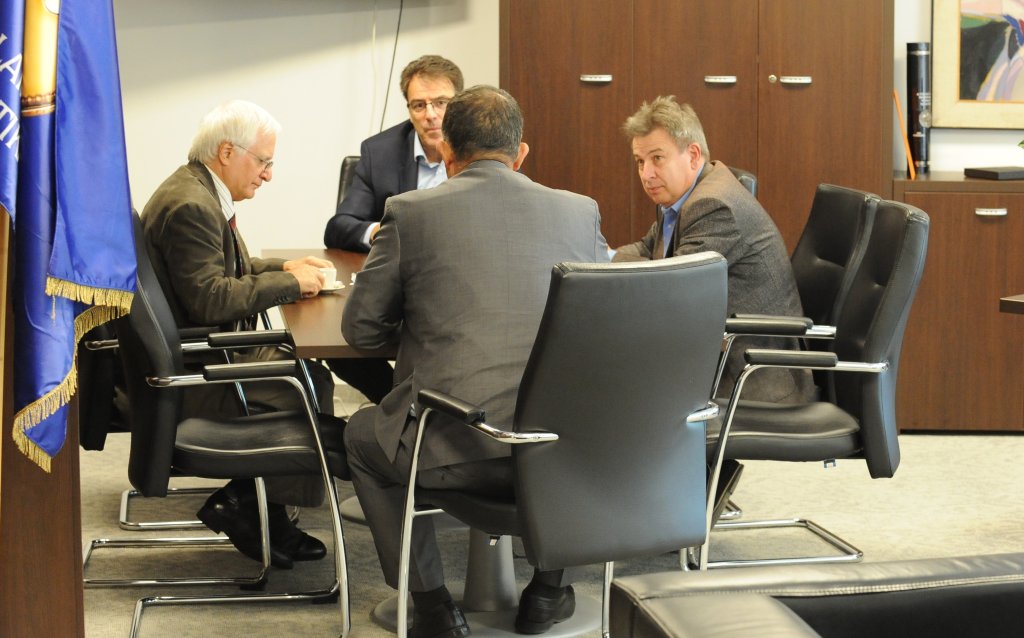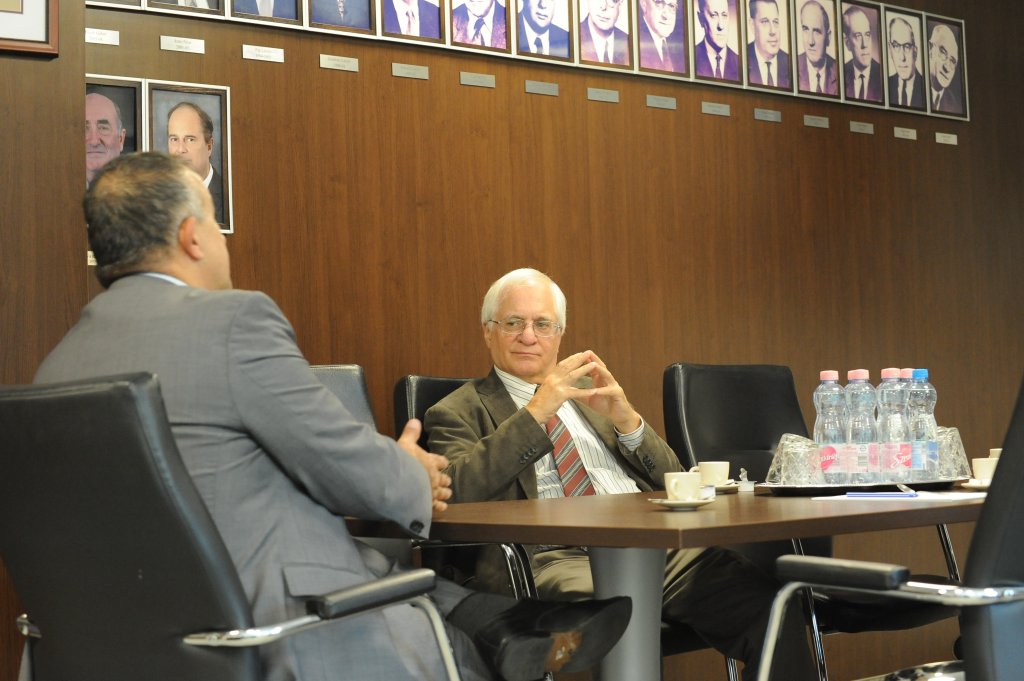News feed
"Technological university with a faculty of economics: an ideal combination"
2024. 09. 27.Michael Cusumano, professor of MIT's world-renowned management training, talks about the possibilities of the BME and innovation-driven enterprises.
Michael Cusumano, professor at the Massachusetts Institute of Technology (MIT), deputy head of the elite American university's business school (Sloan School of Management), has attended BME. He is one of the founders of the Regional Entrepreneurship Accelerator Program (REAP), an initiative aimed at strengthening innovation-driven entrepreneurial ecosystems in many parts of the world.
REAP's only Central and Eastern European program operates in Hungary, and the professional team includes the BME, along with the Hungarian National Bank and the National Research, Development and Innovation Office.

Before his presentation at the HUN-REN research network's workshop, Michael Cusumano met Rector Charaf Hassan, accompanied by two members of the domestic REAP team, international vice-rector András Nemeslaki (on the right in the photo above) and Zsolt Szalay, head of the Department of Automotive Technology of the Faculty of Traffic Engineering and Vehicle Engineering (opposite). The conversation was mainly about what is needed for university researches to have an economically interpretable impact. Bme.hu was also able to ask the professor.
| Michael A. Cusumano attended Princeton and received his PhD from Harvard. With two Fulbright scholarships, he lived in Japan for more than eight years, where he founded the Center for Entrepreneurship and Innovation as vice president of the University of Tokyo and developed a new curriculum for technology management education. He is a visiting lecturer at Imperial College London, Tokyo University, Hitotsubashi University, University of St. Gallen, University of Maryland and the Ludwig Maximilians-Universität in Munich. |
You are delivering a lecture at the HUN-REN workshop. What will you talk about?
About how entrepreneurship and the commercialization of technology became such a defining idea at MIT, and what we are doing to make it happen. Then I'll also talk about REAP, which involves a number of professionals here, and how it fits in with MIT's initiatives.
What are your experiences with BME's participation in the program?
I see BME as having similar resources to MIT in many ways. It is a largely technology-oriented university with a management and economics faculty. This is an ideal combination. A successful corporate culture requires three pillars: research, engineering and management. The ideal university also has three equally strong pillars, and the entrepreneurship program can be built on them. However, this cannot just happen organically, the programs must be coordinated and managed. At MIT, we built this over decades. Our goal with REAP is to share our experiences and, in cooperation with local teams, to adapt some of these experiences to the given regions. Although Hungary is small, the Budapest region and this university are quite large and rich. We usually work with city teams, and the one here is one of the best endowed I've come across, with the support from the central bank behind it. Of course, we also saw weaknesses, primarily in the venture capital community and the corporate sphere. Now, one year later, we're here to assess where the project is.

What research are you currently working on?
A paper on central bank digital currencies versus cryptocurrencies. And I have another paper looking at quantum computing as an engineering problem, rather than just a science problem. I'm also working on corporate venture capital.
gp
